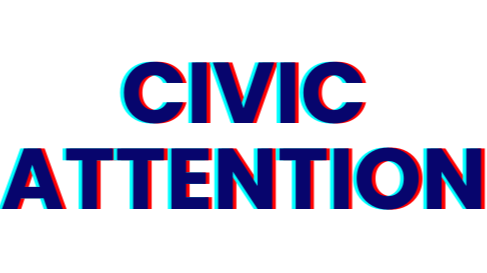
April 2025
Survey: When It Comes to Social Media, Young Adults Want Agency Above All
With many Americans (especially young adults) self-reporting being addicted to social media, majorities express concern about the role of the platforms in our lives and say they want more agency and autonomy when it comes to how they use them.
We asked Americans of all ages about their relationships with social media. Here’s what we found.
In late February and early March 2025, Civic Attention conducted a poll with YouGov to learn more about Americans’ complex relationships with and attitudes toward social media. Our focus was on the distinctions between the general population and young adults aged 18 to 29, due to the critical ways their lives have been shaped by the digital age. The findings revealed widespread concern about social media addiction and its effects on individuals and society — most pronounced among young adults — largely irrespective of their income, education, race, or political views.
The survey of 1,653 U.S. adults was administered via YouGov’s online panel from 2/27/25-3/3/25. Results have been weighted to reflect the national adult population. MOE ±2.7%.
Addiction to social media is felt most acutely by young people.
Young adults are significantly more likely to be negatively impacted by social media:
Three in ten (30%) young adults self-report being addicted to the platforms by strongly or somewhat agreeing with the statement “I am addicted to social media,” compared to 21% of the general population.
Two in three (65%) young adults report spending 3+ hours on social media per day, compared to 45% of the general population.
Seven in ten (71%) young adults believe social media platforms’ primary goal is to addict them to scrolling, compared to 61% of the general population.
"I am addicted to social media"
Americans of all backgrounds are concerned about the effects of social media.
Across age, political identity, family income, education, and race, Americans expressed deep concern about the platforms and their impact on individuals and society:
Two in three (65%) respondents somewhat or strongly agreed with the statement “the impact of social media on individuals and society is one of the most important issues of the 21st century.”
Seven in ten (70%) respondents agreed that social media platforms have too much influence over society’s beliefs and political opinions.
Nearly three in five (57%) respondents believe their friends or family have fallen for propaganda or other intentionally misleading information on social media.
"The impact of social media on individuals and society is one of the most important issues of the 21st century"
Majorities of young people want to build better relationships with social media.
While Americans of all age groups want more control of their experience online, young adults are significantly more likely to show interest in better engaging with the platforms:
Nearly seven in ten (68%) respondents said that, if given the choice, they would adjust the settings of their algorithms on social media to have more control over the content they are shown.
Two in three (65%) young adults said social media is essential for them to stay connected and informed, compared to 48% of the general population.
More than three in five (62%) young adults showed interest in learning how to build better habits around their social media usage, compared to 42% of the general population.
Three in five (59%) young adults showed interest in learning more about the addictive and manipulative tactics of social media platforms and their algorithms, compared to 47% of the general population.
"I am interested in learning how to build better habits around social media"
Conclusion
There is broad consensus across demographics about the need to mitigate the negative impacts and influence of social media platforms. However, given social media’s critical role in connecting and informing Americans, the solution isn't abandonment but rather empowering users to exert more control over how, when, and why they engage online.
No cohort exemplifies the urgent need for balance more than young adults (ages 18–29): they experience social media addiction most acutely, rely on its benefits most heavily, and express the strongest desire to cultivate healthier habits and relationships with the platforms.
For questions or more information, email us at info@civicattention.org.
